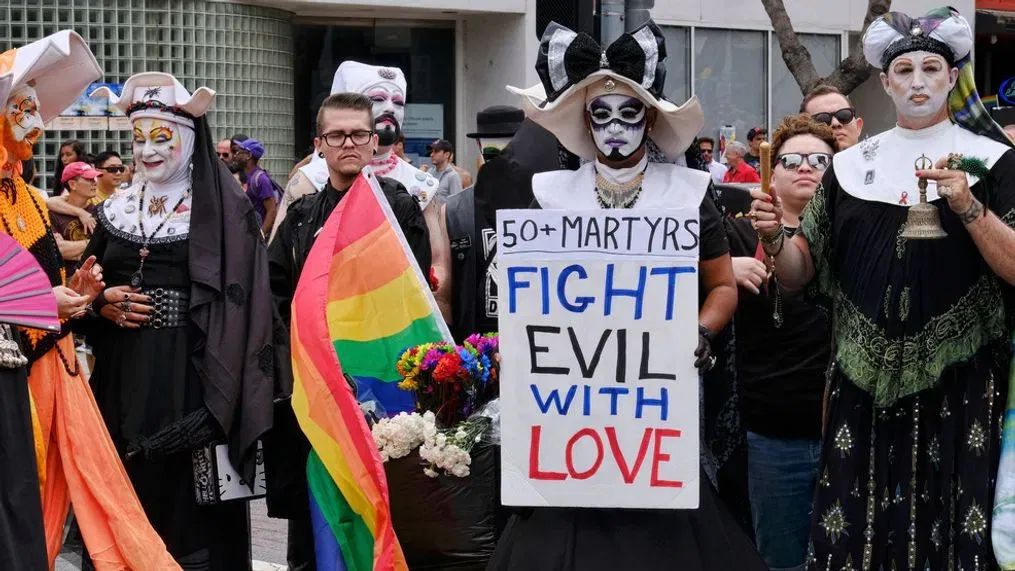Dodger Stadium became a battleground for religious conservatives and LGBTQ+ activists as protests unfolded over the honoring of the Sisters of Perpetual Indulgence, a satirical performance and activist group composed of drag nuns.
The Dodgers Stadium, which hosts Los Angeles Dodgers vs San Francisco Giants game on Friday, was boycotted by fans who protested against the anti-Catholic drag nun group Sisters of Perpetual Indulgence.
The event, scheduled during the team’s Pride Night and game against the San Francisco Giants, triggered feelings of indignation and anger among religious groups who considered the Sisters’ acts blasphemous.
On the day of the event, hundreds of protesters, predominantly clad in red, gathered outside Dodger Stadium for a “prayerful procession.” Demonstrators distributed rosaries, held up religious flags and signs, expressing their displeasure with the Dodgers’ decision to honor the controversial organization.
Los Angeles Archbishop José H. Gomez had earlier criticized the Sisters during an afternoon Mass, further fueling opposition.
A History of Activism and Satire: Founded in San Francisco in 1979 by three gay men dressed as drag nuns, the Sisters of Perpetual Indulgence have been engaged in charity work, AIDS fundraisers, safe-sex advocacy, and condom distribution for the LGBTQ+ community.
However, it is their incorporation of Christian tradition and imagery, including provocative events like the “Hunky Jesus” and “Foxy Mary” competitions, that has drawn condemnation from religious groups and leaders.
The controversy surrounding the Sisters of Perpetual Indulgence reflects the ongoing culture wars over LGBTQ+ rights. Religious conservatives perceive the group’s acts as disrespectful and sacrilegious, while LGBTQ+ activists defend their work as satirical and complex speech.
Also Read: Tanner Houck hit on face, taken off field during New York Yankees vs Boston Red Sox: Watch video
Bridging the divide requires understanding and dialogue between the opposing views, with the recognition that this clash highlights deeper societal questions about the boundaries of parody, humor, and religious beliefs.


